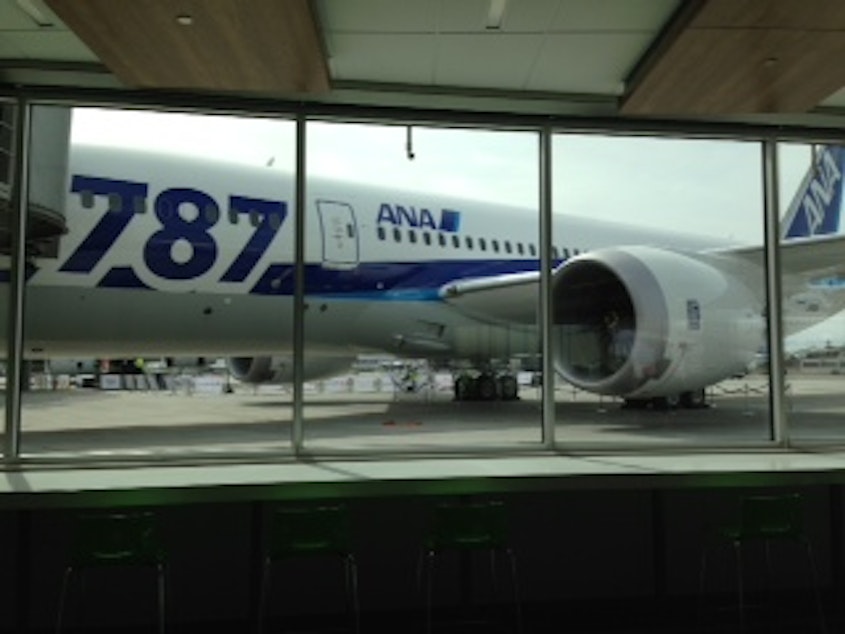Federal Aviation Administration Rapped For Dreamliner Battery Fires

The Federal Aviation Administration failed to properly test the lithium ion batteries on the Boeing 787 Dreamliner, the National Transportation Safety Board said in a report released on Wednesday. The report said that the FAA relied too much on Boeing for technical expertise.
The National Transportation Safety Board has been investigating a 787 fire at Boston Logan airport last year and has assisted Japanese authorities with their investigation of a similar incident there.
From the start, the NTSB been critical of Boeing and the FAA. In a report issued months before its final report on the Logan incident, due out this fall, the federal accident investigator has faulted the certifier of safety on the nation's planes for the 787 fires.
The NTSB says Boeing and the FAA tested the lithium-ion batteries by driving a nail through the battery to see whether this would touch off a thermal runaway – an incident in which heat spreads from cell to cell inside the battery, magnifying each time.
But at Logan, the battery suffered an internal short-circuit. That kind of situation wasn’t presented during testing, the NTSB said, so the FAA didn't do its job.
Sponsored
The safety board says the FAA should develop a test to show how a battery responds to an internal short-circuit. The test does not exist now. It also said the FAA should re-evaluate the risks for planes already in the air.
Scott Hamilton, a local aerospace analyst, said that he heard long before the 787 entered service that the FAA was having trouble overseeing production of the plane. "There were so many new technologies involved that the FAA simply didn't have the in-house expertise," he said.
Michel Merluzeau, an aerospace analyst with G2 Solutions, said Boeing's solution to the 2013 battery crisis — which isolated each cell — reduces the risk of a serious fire. "This containment and isolation means that the 787 is a very safe aircraft," he said.
But University of California Berkeley chemical engineering professor Nitash Balsara, who runs a research group focused on battery technology, said he was uncertain that Boeing’s issues with lithium-ion batteries were truly over.
“It’s difficult to be sure when there was no cause identified,” he said. “I don’t think this is over.”
Sponsored
Boeing said in a statement its testing met industry standards at the time, and it will make changes as knowledge advances. The NTSB's recommendations are not binding.
